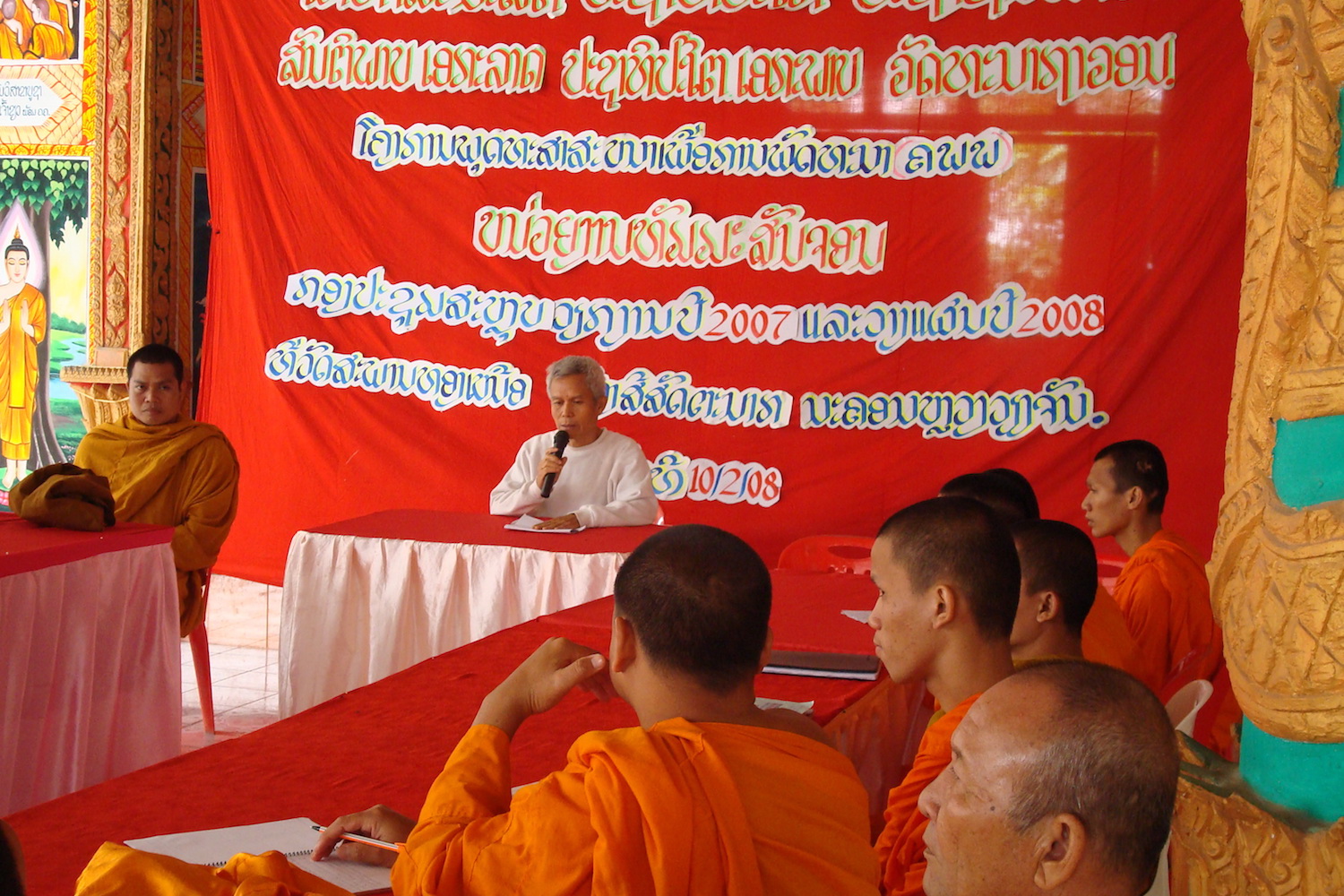Asian Parliamentarians for Human Rights: 28 October 2013
 BANGKOK (October 28) — ASEAN Parliamentarians today called on a European Parliament delegation to Vientiane to persevere with collective efforts to secure the safe return of Lao civil society activist Sombath Somphone, the victim of an enforced disappearance last year.
BANGKOK (October 28) — ASEAN Parliamentarians today called on a European Parliament delegation to Vientiane to persevere with collective efforts to secure the safe return of Lao civil society activist Sombath Somphone, the victim of an enforced disappearance last year.
CCTV footage shows Sombath was last seen with local police in the Lao capital Vientiane on December 15, 2012. He has not been seen since and ASEAN Parliamentarians for Human Rights (APHR) has expressed both publicly and privately over the past 10 months the perceived failure of the Lao authorities in their sincerity to properly investigate his disappearance.
A delegation from the EU Parliament travelled to Vientiane on October 28.
“This visit offers an important opportunity for EU delegates to clearly convey the same message that the Lao authorities have been hearing from many of us over recent months. They must ensure the safe return of Sombath and accept offers of assistance to help them investigate his disappearance. Such acts must and cannot be allowed to pass without effective and genuine response,” said Walden Bello, APHR Vice President and Philippines member of congress.
Walden Bello was part of an ASEAN parliamentary delegation that visited Laos to inquire about Sombath’s disappearance in January 2013. The other MPs in the delegation were Charles Santiago of Malaysia and Lily Wahid of Indonesia. They met with top officials of the Lao government who all disavowed any knowledge of what happened to Sombath or his whereabouts. Two subsequent parliamentary delegations have been to Laos since then, including one involving members of the European Parliament. On each visit the Lao authorities have insisted that, contrary to the CCTV footage, investigations to date have suggested no police or state involvement in his disappearance.
Sombath’s disappearance highlights the many struggles that people are facing in Laos today. The brazen abduction of one of the countries most respected civil society activists has compounded the climate of fear under which those seeking to help the marginalized and disenfranchised operate. It is of vital importance that those working with local communities and wider environmental and human rights issues in Laos are aware that the world is watching and that those responsible for Sombath’s disappearance cannot act with impunity.
APHR stressed that enforced disappearances and restriction of civil and political rights were not concerns particular to Laos alone; it remains a region-wide problem.
APHR believes the European Union along with countries in ASEAN can work together to support Laos’ efforts to open up and become a stronger voice both regionally and internationally; but this cannot happen unless the government lives up to its international obligations on human rights and justice.
Laos is a signatory to the International Convention for the Protection of All Persons from Enforced Disappearance under which it has a responsibility to prevent and remedy any enforced disappearance and is bound under international law to refrain from acts that would defeat the object and purpose of this treaty.
Efforts to engage with Vientiane so far have however, received some positive responses from the Lao authorities, with government officials giving assurances that they are aware of the seriousness of the case and that no efforts would be spared in the ongoing investigation.
Nevertheless, APHR supports wider calls for the Lao government to establish an independent commission with international support or involvement to investigate the case and called on the EU to use its financial and political leverage to impress upon the Lao government the urgency and seriousness of this case and to clarify the many questions that surround Sombath’s disappearance and the ongoing investigation. Laos is the recipient of millions of dollars in international development aid annually, and the EU has provided general budget support to the Lao government of 12 million Euros over the period 2008–2012.
“Our European peers should support us and the many progressive elements in Laos in helping the Lao government open up and ensure a more enabling environment for civil society,” said Eva Sundari, APHR President and Indonesian Member of Parliament.
“As in many of the countries in our region, there is still a lot of work to be done in terms of respect for basic civil and political rights in Laos, but a line has been drawn with the disappearance of Sombath and none of us will rest until he is returned.”
ASEAN Parliamentarians for Human Rights (APHR) is a collective of lawmakers from Southeast Asia working to improve human rights responses and justice in the region.
